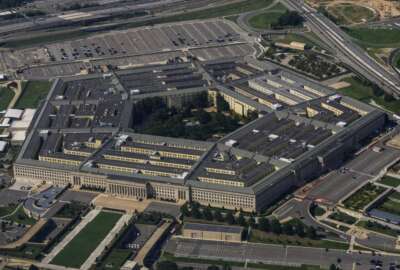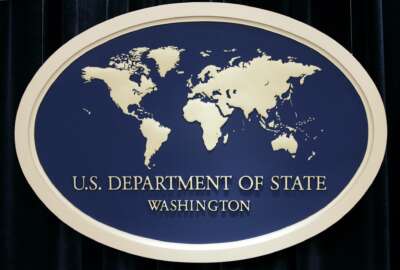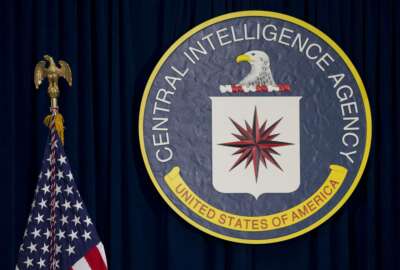- For the first time in nearly six years, there is a new general in charge at the National Security Agency. Air Force Gen. Timothy Haugh is officially director of the NSA and head of U.S. Cyber Command. He took the reins last Friday during a change-of-command ceremony. Army Gen. Paul Nakasone retired after leading the dual command since May 2018. Haugh most previously served as CYBERCOM’s deputy commander. He has also served in leadership positions at Sixteenth Air Force and in other positions in the intelligence community.
- Here are seven ideas to reform the federal budget process. Growing concerns about budget cuts and other austerity measures has led a group of federal experts to push for ways to strengthen the budget process for improved management. The Shared Services Leadership Coalition and the IBM Center for The Business of Government brought together 19 experts to recommend new ways to accelerate management improvement, promote greater administrative efficiency and improve government performance. Among their recommendations is one to strengthen links between management routines and budget development efforts, and another is to prioritize and fully price multiyear plans to address the capital needs that can lead to long-term savings.
- Some Department of Homeland Security components would see a big hiring boost under the $118 billion national security supplemental spending bill released by Senate negotiators on Sunday. The bill has $534 million for Immigration and Customs Enforcement to hire more officers and agents. It also includes funding for U.S. Citizenship and Immigration Services to onboard more than 4,000 new asylum officers. And the legislation would grant both ICE and USCIS direct-hire authority for the next five years. While the legislation has some bipartisan support in the Senate, it faces a steep uphill climb in the Republican-controlled House.
- The State Department is calling on mid-career experts in the private sector to join the Foreign Service at mid-career ranks. That is the idea behind the congressionally mandated Lateral Entry Pilot Program. Lucia Piazza is the deputy assistant secretary for the State Department’s Bureau of Global Talent Management. She said the pilot will help bring critical skills into the Foreign Service. “Especially as things change so rapidly, there’s a real need to bring in folks who are also interested in diplomacy, who want to be Foreign Service officers, but who come with this wealth of experience in these very, very specific areas," Piazza said.
- The Department of Veterans Affairs is giving lawmakers an update on its investigation into alleged sexual harassment. The department sent the House VA Committee its final report on allegations directed at leaders within the Office of Resolution Management, Diversity, and Inclusion. Lawmakers said the report substantiates much of what VA whistleblowers told the committee, but they said it is still not everything they demanded in a subpoena approved last month. The committee plans to hold a hearing with updates on its investigation next week.
- It has been nine years since the OPM data breach and now two lawmakers want to give the 22 million current and former federal employees impacted free lifetime identity-protection coverage. D.C Delegate Eleanor Holmes Norton (D-D.C.) and Rep. Dutch Ruppersberger (D-Md.) have introduced the Reducing the Effects of the Cyberattack on OPM Victims Emergency Response (RECOVER) Act. It would require OPM to provide lifetime identity-protection coverage for the affected individuals. The current identity protection coverage approved in 2015 is set to expire in October 2026.
- Adm. Samuel Paparo, tapped to lead the United States Indo-Pacific Command, is pledging to focus on logistics if confirmed by the Senate. Paparo said he is committed to improving airfields, sea ports and warehousing to decrease logistics vulnerabilities. Paparo also pledged to address gaps in intelligence, surveillance and reconnaissance capabilities. He will also focus on assessing current information-related capabilities and consider options to improve the Pentagon’s information operations readiness in the region. Paparo currently leads the United States Pacific Fleet. If confirmed, Paparo will succeed Adm. John Aquilino, who is retiring in the spring. Paparo will oversee the Indo-Pacom region through the mid-2020s.
- The Air Force’s 350th Spectrum Warfare Wing is collaborating with the service’s weapons school to expose students to realistic threats in the electromagnetic operational environment. For the first time, the wing partnered with the Air Force Weapons School to provide students with a better understanding about the challenges posed by adversaries’ advanced systems, how to counter them and how to control the electromagnetic spectrum. Specifically, the wing wanted to re-program mission data files for priority combat platforms and acquire and analyze crowd-sourced flight data. It also sought to further develop electronic warfare assessment and operation experience and to test the ability to download advanced mission applications in flight. Integrating the 350th Spectrum Warfare Wing into the service’s weapons school will be a building block for future exercises so maintenance, support and intelligence personnel are more prepared to counter electromagnetic spectrum challenges in the future.
Copyright
© 2024 Federal News Network. All rights reserved. This website is not intended for users located within the European Economic Area.





